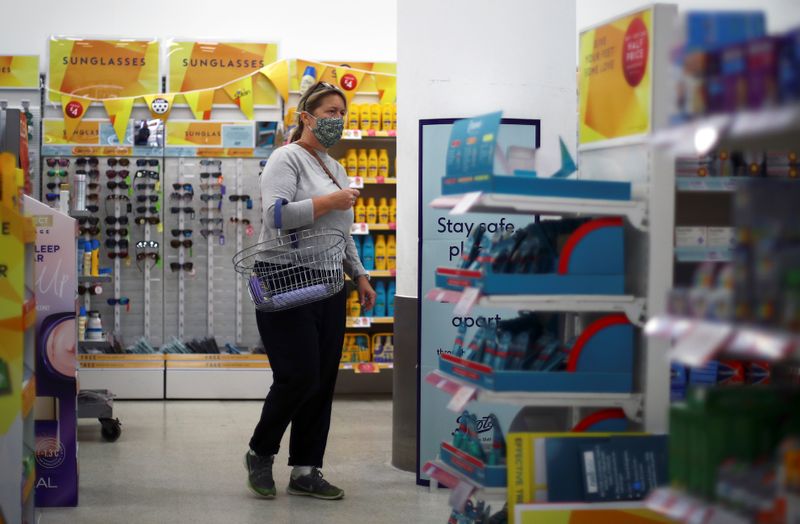By Andy Bruce and William Schomberg
LONDON (Reuters) - British inflation rose unexpectedly last month, spurred by rising prices for in-demand computer consoles during the coronavirus lockdown, official data showed on Wednesday.
Consumer price inflation increased to 0.6% in June from May's four-year low of 0.5%, pushed up also by the lack of traditional summer clothing sales last month after retailers slashed prices during the lockdown earlier in the year.
The average forecast in a Reuters poll of economists was for the rate to fall to 0.4%. Only a few had predicted an increase.
"June's inflation figures are slightly above expectations but there remains abundant spare capacity in the economy," said Debapratim De, senior economist at Deloitte.
"This should maintain a downward pressure on inflation, which could fall further, especially if there is a spike in unemployment later this year."
Data published on Tuesday showed gross domestic product grew by a slower than expected 1.8% in May from April, when it slumped by 20%. The government's budget forecasters said the economy could shrink by as a much as 14.3% this year.
An emergency cut to the VAT sales tax rate for hospitality and tourism, which took effect on Wednesday, is also likely to exert downward pressure on inflation.
Economists say inflation running well below the Bank of England's 2% target leaves it under no pressure to rethink its huge stimulus push.
PRICES POWER UP
The coronavirus outbreak's impact on supply chains led to shortages of game consoles around the world, just as demand spiked from people isolating at home.
In May, the Japanese computer games giant Nintendo (T:7974) reported a surge in profits in the first three months of the year, when many countries first entered lockdown.
"It is possible that prices have been influenced by the coronavirus (COVID-19) lockdown changing the timing of demand and the availability of some items, particularly consoles," the ONS said in a statement.
"However, it is equally likely to be a result of the computer games in the bestseller charts."
Clothing and footwear prices almost held steady in June, a month which usually sees sales promotions.
The ONS said 17% of the items used to compile the CPI were unavailable to consumers in June because of the lockdown, including pints of lager in pubs and haircuts.
Core inflation - which excludes typically volatile prices - rose to 1.4% from May's 1.2%.

Factories' selling prices fell 0.8% in annual terms, compared with the Reuters poll consensus for a 1.1% drop.